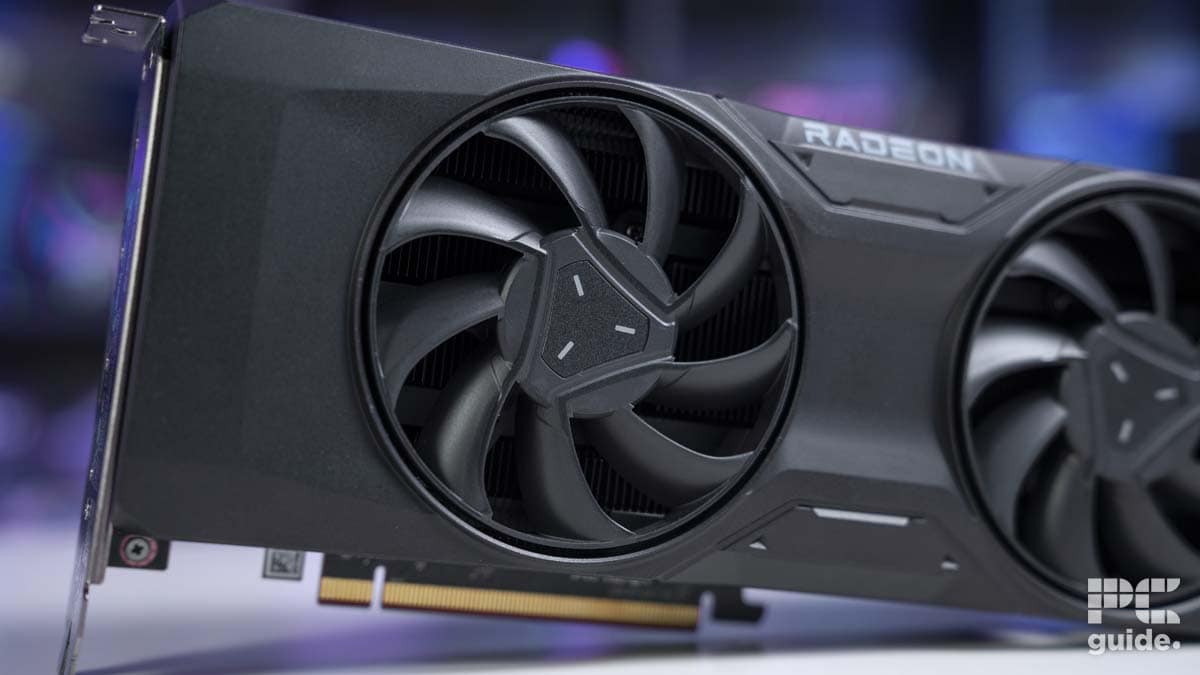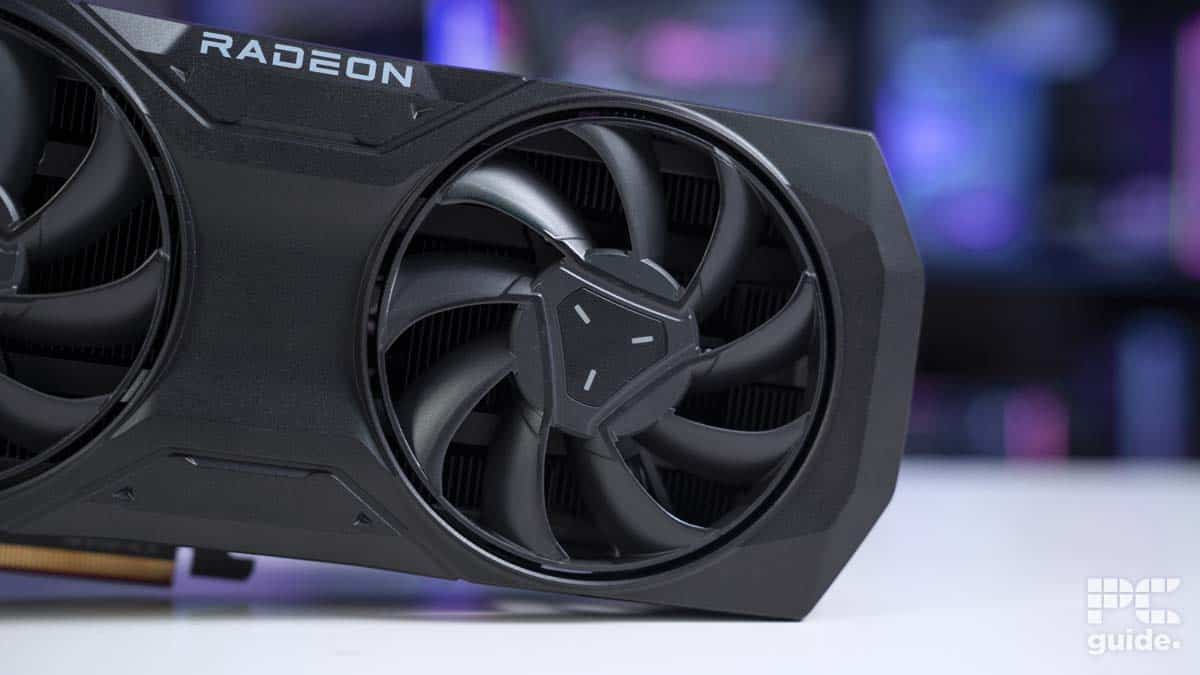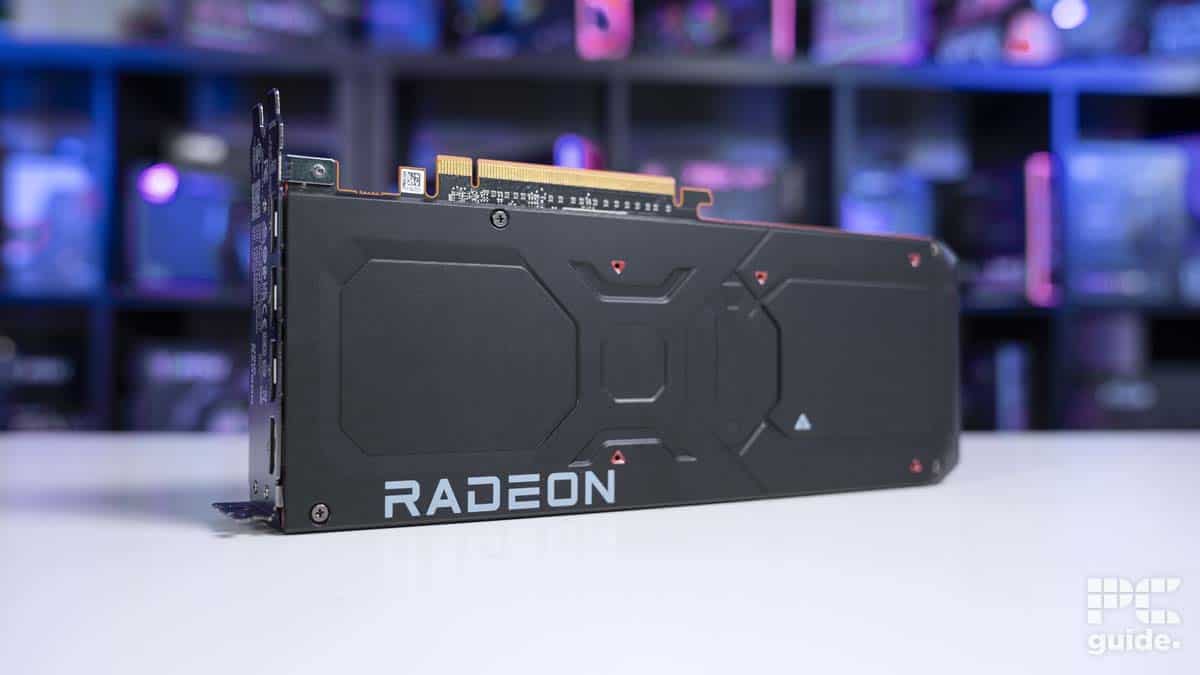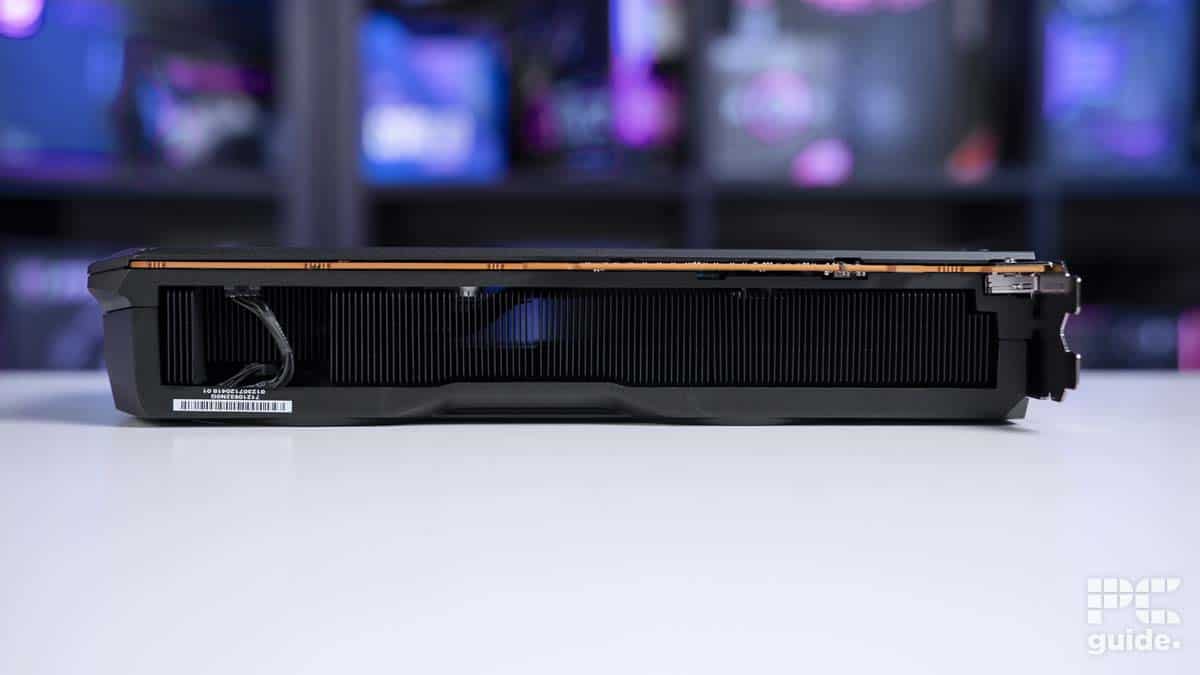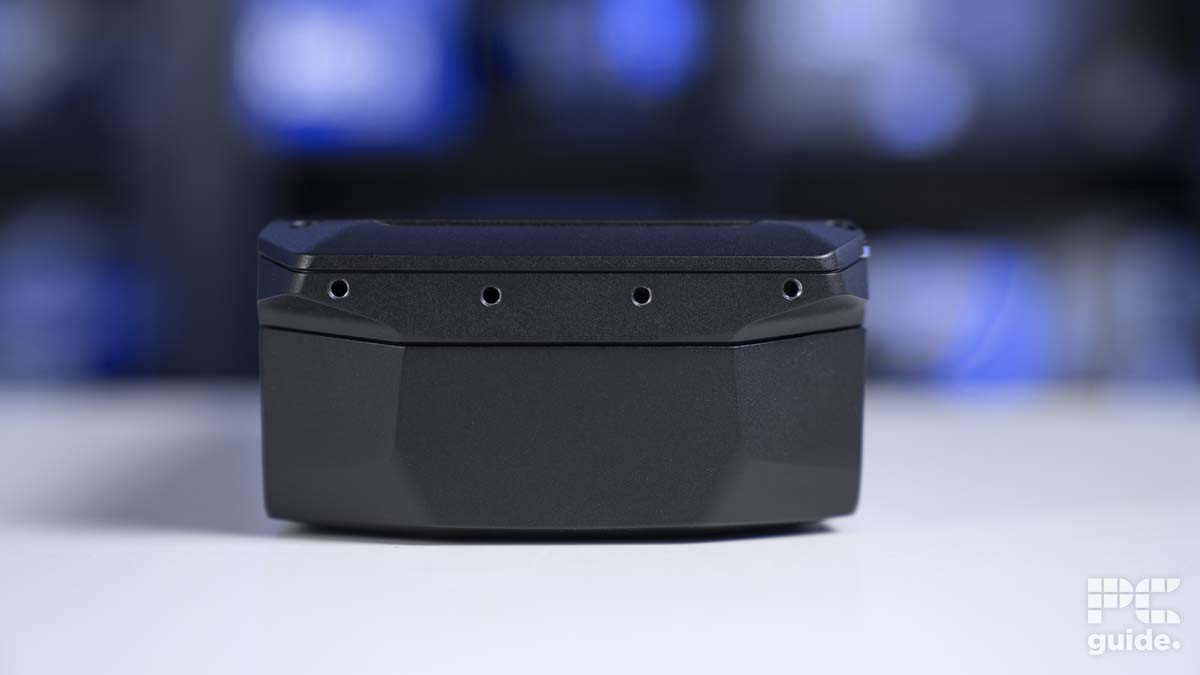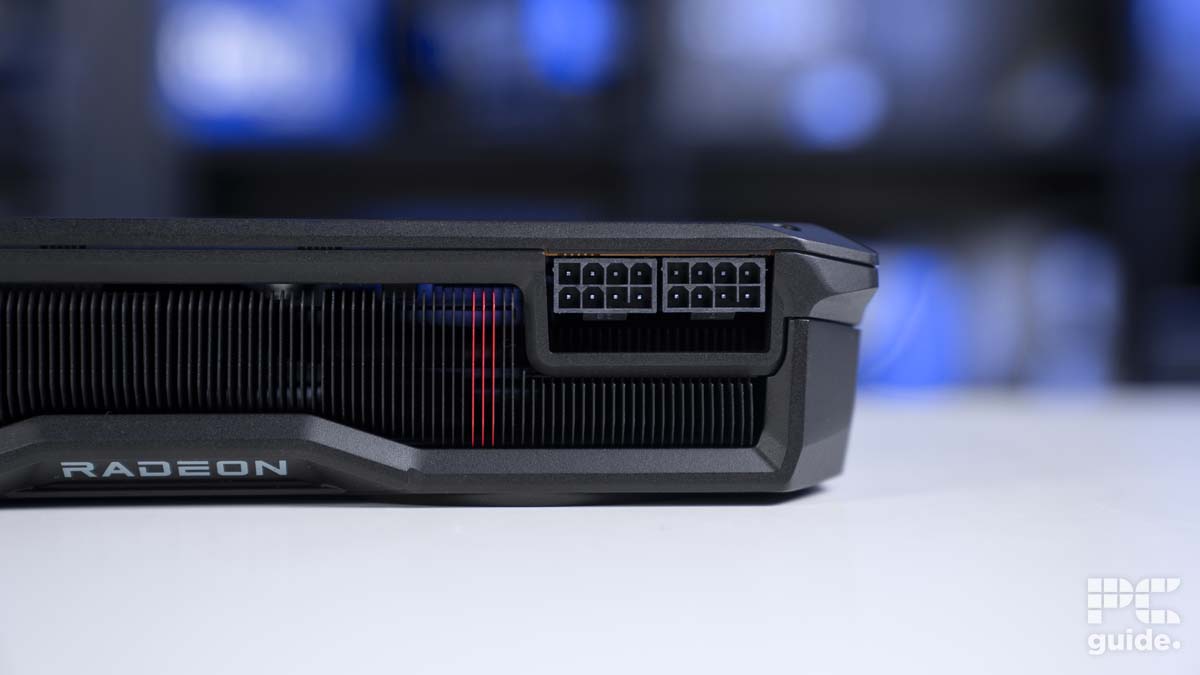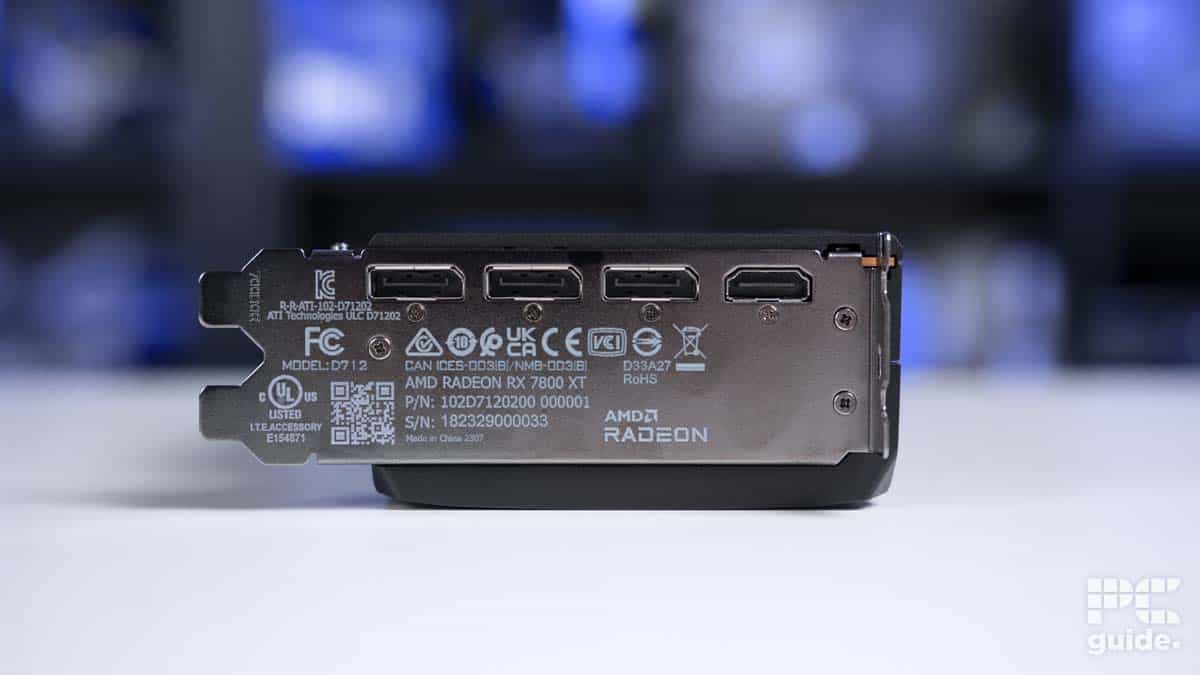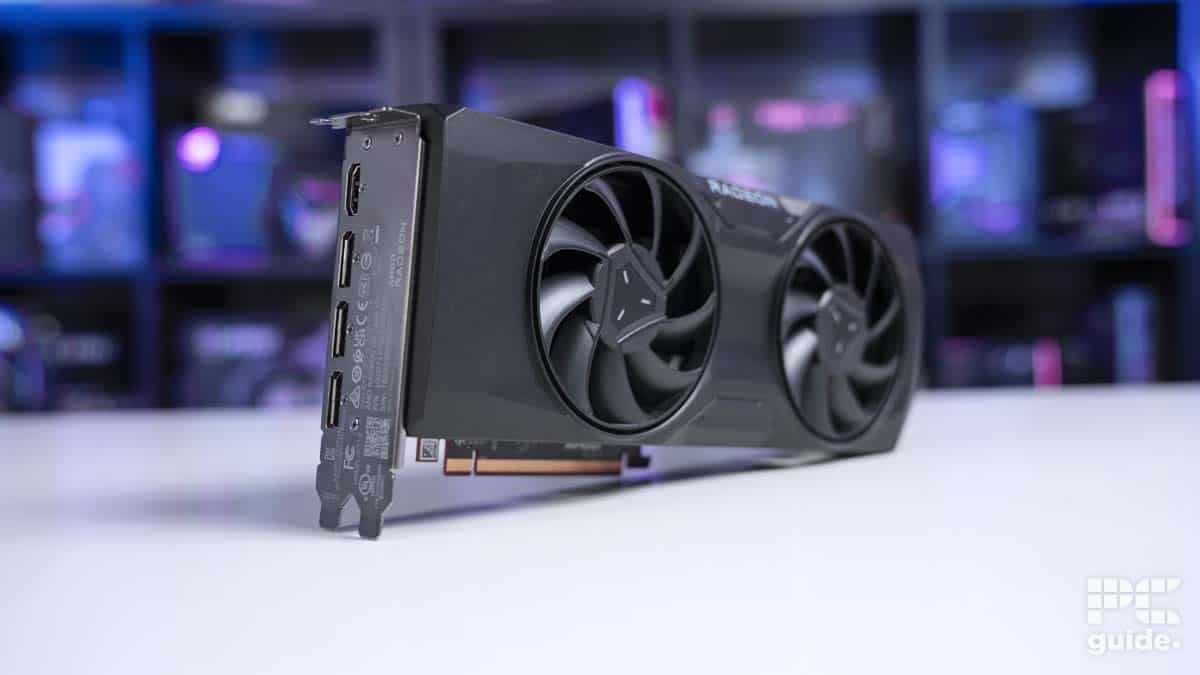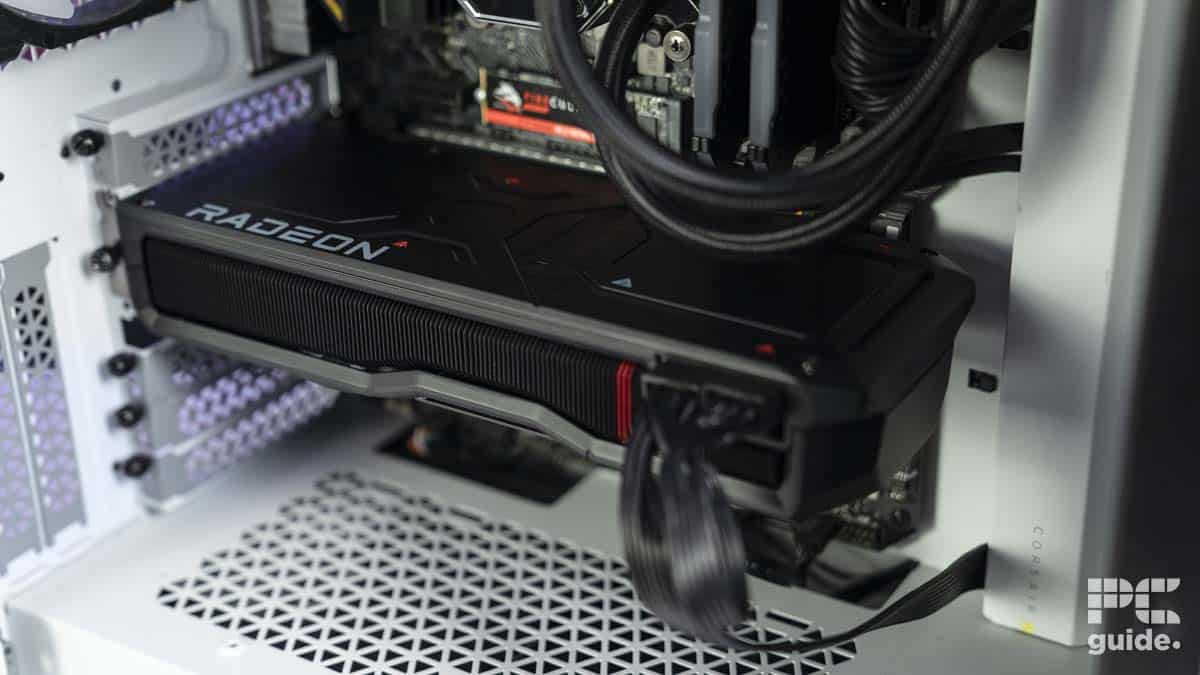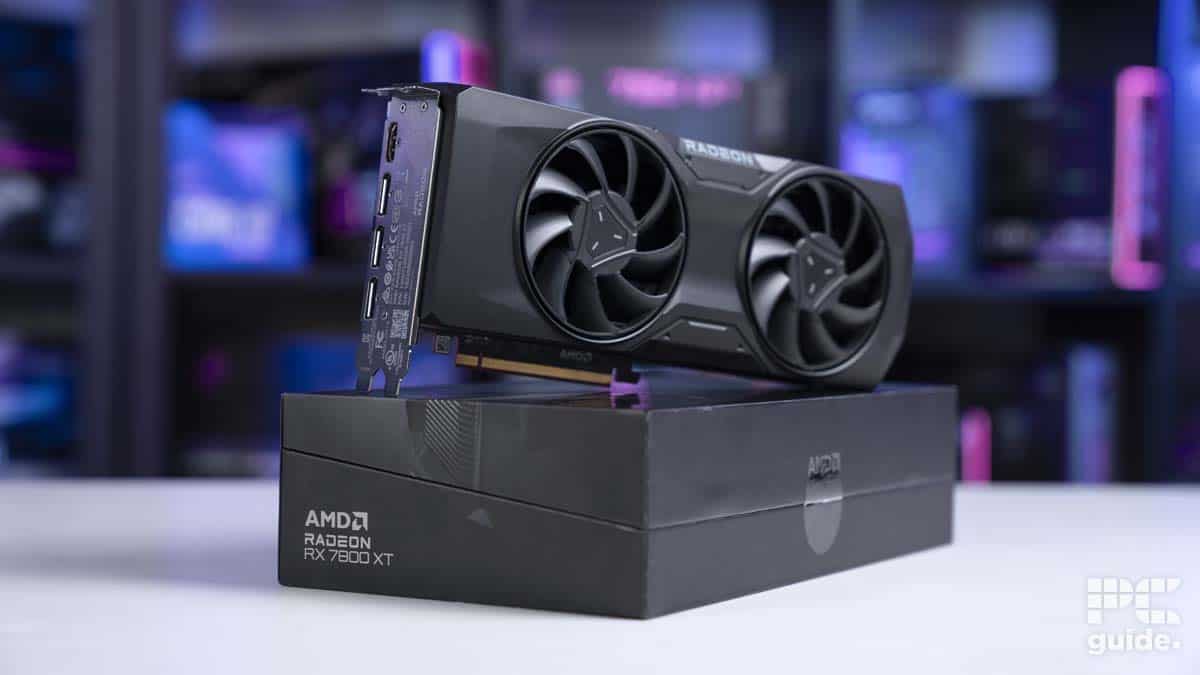AMD Radeon RX 7800 XT review – is it worth it?
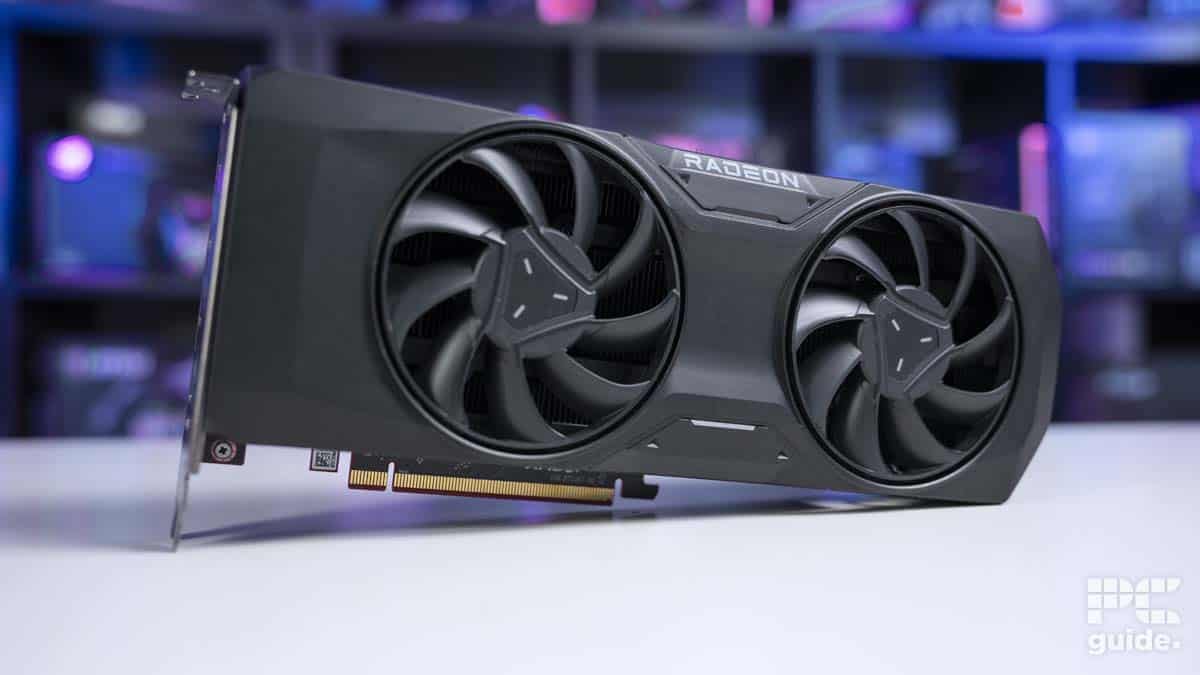
Table of Contents
Billed as “the ultimate 1440p upgrade” by Team Red, the AMD Radeon RX 7800 XT has a high bar to cross, especially given the pedigree of the RDNA 3 lineup so far. We’ll cut right to the chase and tell you that this mid-range offering ranks among the best graphics cards available, especially given its aggressive pricing. Let’s get into exactly why in this full AMD Radeon RX 7800 XT review.

- GPU: Navi 32
- Stream Processors: 3,840
- VRAM: 16 GDDR6
- Memory bus width: 256-bit
- Bandwidth: 624.1 GB/sec
- Base clock speed: 1,295 MHz
The AMD Radeon RX 7800 XT is a leading 1440p graphics card for its price point, undercutting its competition significantly. It may not lead in terms of its productivity performance, but those after a pure graphics card for gaming will be very happy with what this one can do.
- Excellent 1440p gaming
- Aggressive pricing
- Leading for 1080p gaming
- Not the best for creatives
- 4K is beyond the GPU's reach
Why we’ve scored it a 4.5
The AMD Radeon RX 7800 XT is an excellent graphics card for gaming with an all-star price point of at (or under $500). It misses out on a perfect score due to lacklustre productivity performance, but gamers are sure to love this GPU.
AMD Radeon RX 7800 XT price
The AMD Radeon RX 7800 XT currently carries a starting MSRP of $499 and above depending on your version of choice, making it comparable to the company’s other 1440p champion the RX 7700 XT. That positions the 7800 XT firmly in the mid-range of the GPU market, cheaper than the similarly powerful Nvidia RTX 4070 and RTX 4070 Super by $100, which is something that can be commended. We’ll be touching on the performance further down the page.
AMD Radeon RX 7800 XT key specs
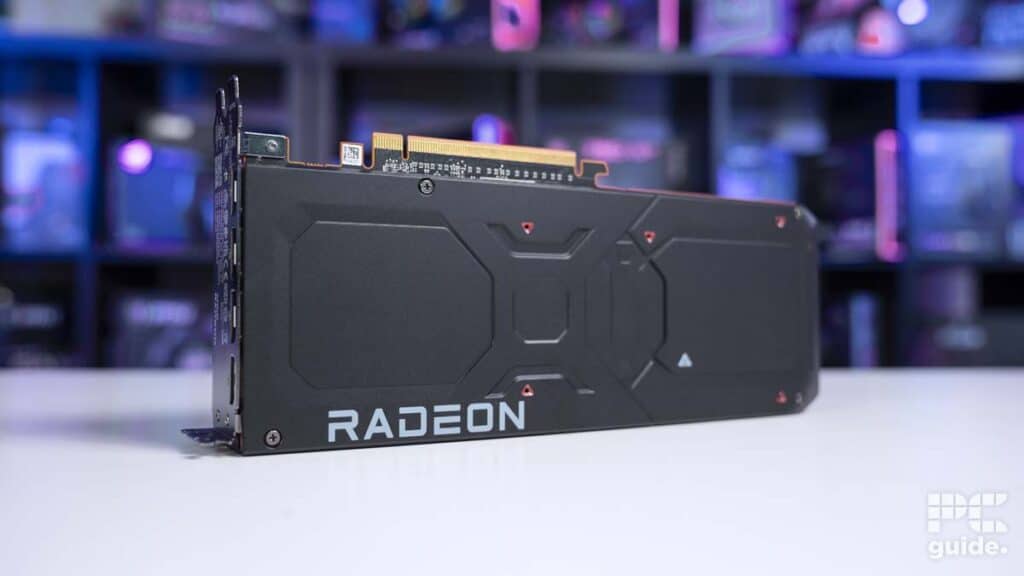
In terms of hardware, the AMD Radeon RX 7800 XT is built on the Navi 32 die with a total of 3,840 Stream Processors and 16GB GDDR6 memory on a 256-bit memory bus. For context, that’s 386 more GPU cores and 4GB extra VRAM than the 7700 XT for an extra $50. Its base clock speed isn’t the fastest at 1,295 MHz, however, things drastically improve with the game clock and the boost clock at 2,124 MHz and 2,430 MHz respectively.
That allows for a bandwidth of 624.1 GB/s meaning 19.5 Gbps effective memory which is fairly fast considering the more humble price tag. Speaking to AMD’s reference model, it’s a dual-slot GPU measuring 10.5 x 4.4 x 2 inches (LxWxH) is a smaller alternative than the likes of its competition by Nvidia, however, this is going to depend on whether you’ve got an AMD-made version or a partner card which we’ll touch upon down below about the design.
AMD Radeon RX 7800 XT key design
Speaking to the design, the AMD Radeon RX 7800 XT Reference model looks exceptional, sporting a slick black and red color scheme. As touched upon above, it’s remarkably powerful considering its small size and dual-slot design. This is particularly evidenced by the heatsink and backplate which are jet black and understated, perfect for those after a more minimalistic rig without the need for RGB or garish colors.
Every single game we tested achieved at least 60fps, with some titles pushing far beyond the 100fps mark when maxed out in this target resolution
AMD’s Reference card features two powerful fans to aid airflow but you can find some partner models offering overclocking potential with a triple fan setup if that’s more your speed. As it stands, it’s essentially a smaller and sleeker version of the 7900 XTX and should fit comfortably instead of smaller form factor machines just as well as mid-towers. With that out of the way, let’s get into the GPU’s respective performance.
AMD Radeon RX 7800 XT gaming performance
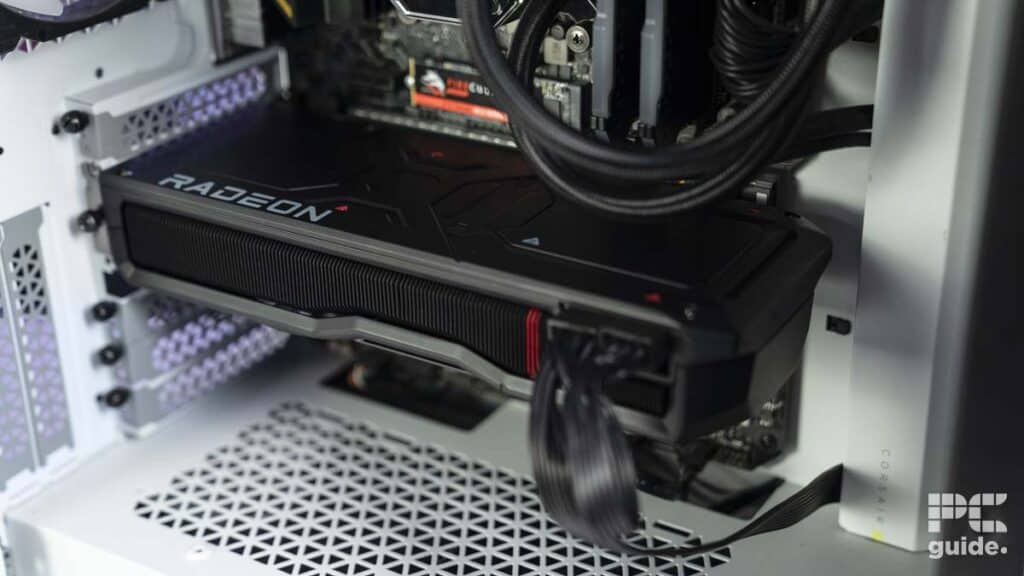
With all said, how does the RX 7800 XT perform performance-wise as the “ultimate upgrade for 1440p gaming” according to AMD? Well, in the testing conducted by BGFG’s Sebastian Kozlowski, it’s clear that this GPU leads in terms of QHD holding its own against the more expensive RTX 4070 family. Every single game we tested achieved at least 60fps, with some titles pushing far beyond the 100fps mark when maxed out in this target resolution.
Be on the hunt for discounts
The RX 7800 XT is easily found under $500 depending on the AIB. However, we recommend hunting around through various retailers for the deepest savings.
No matter how you slice it, maxed-out 1440p for under $500 is impressive, even if the RTX 4070 Super pulls ahead as a whole, not entirely unexpected from a GPU costing at least $100 more. Team Red was smart to not market this GPU on its 4K abilities as it’s not consistent or impressive. Games such as F1 23 and Cyberpunk 2077 hovered around the 30fps mark, however, some titles hover around the 60fps mark natively in this resolution like Assassin’s Creed Mirage. 1440p is where this card works best.
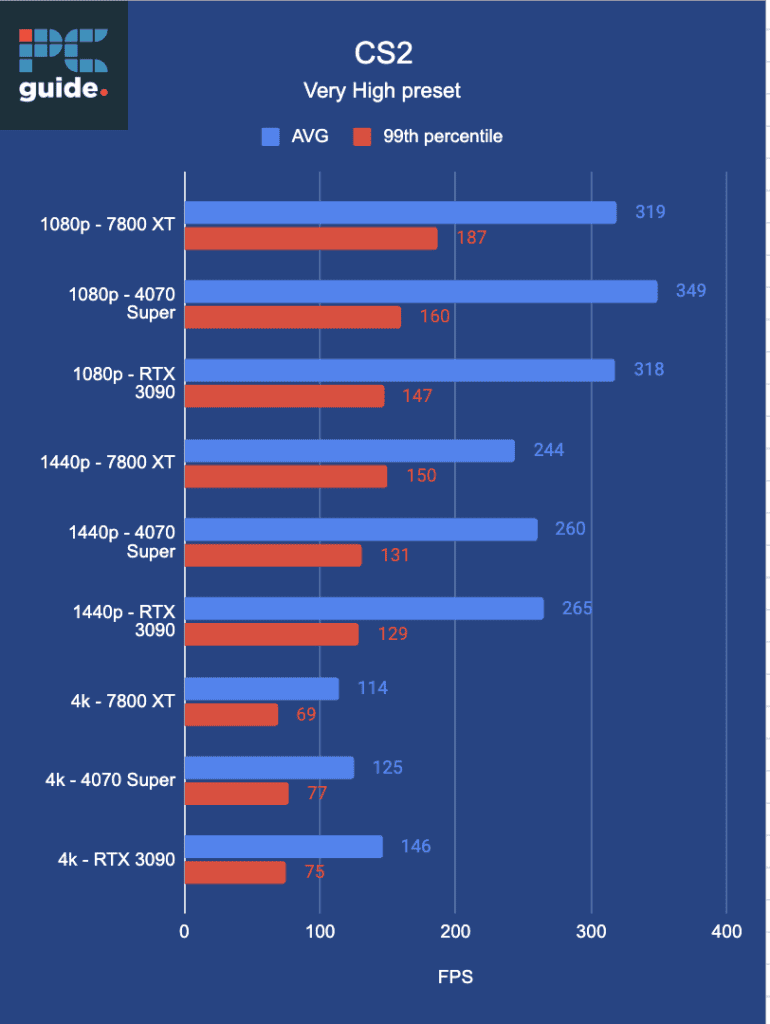
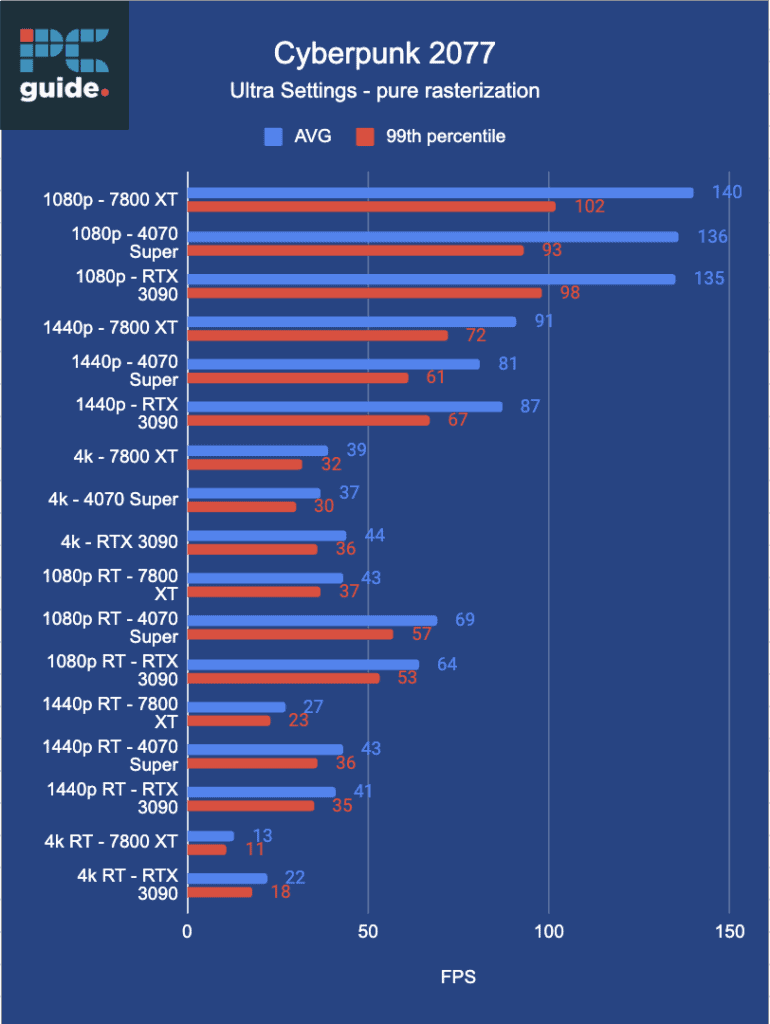
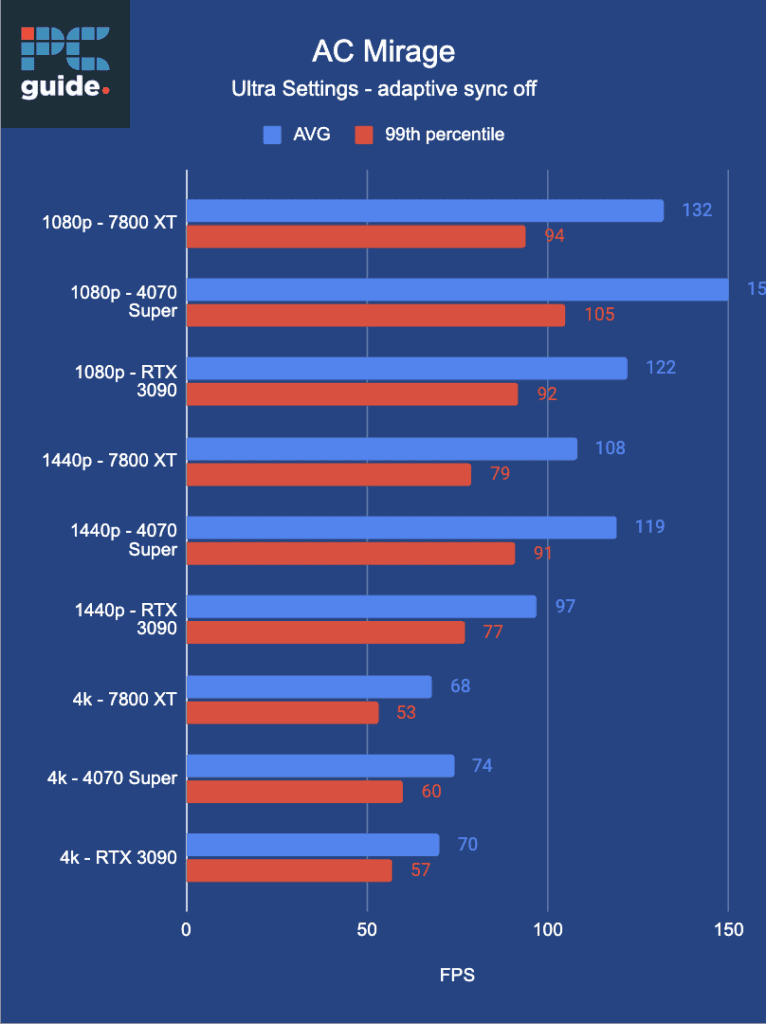
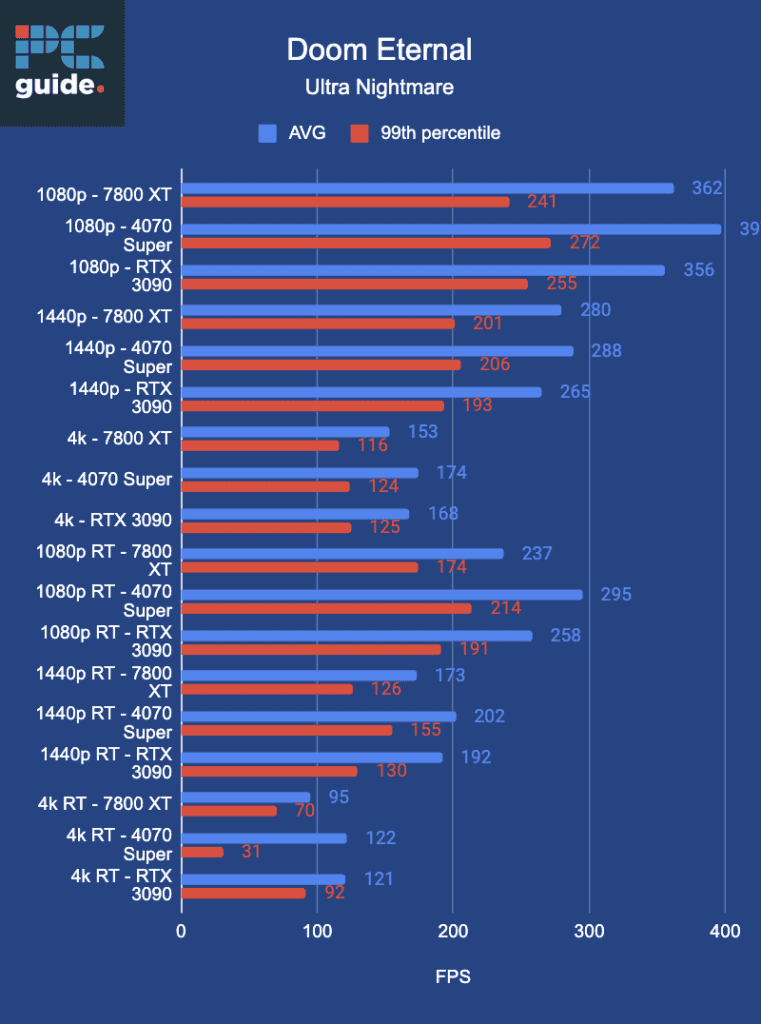
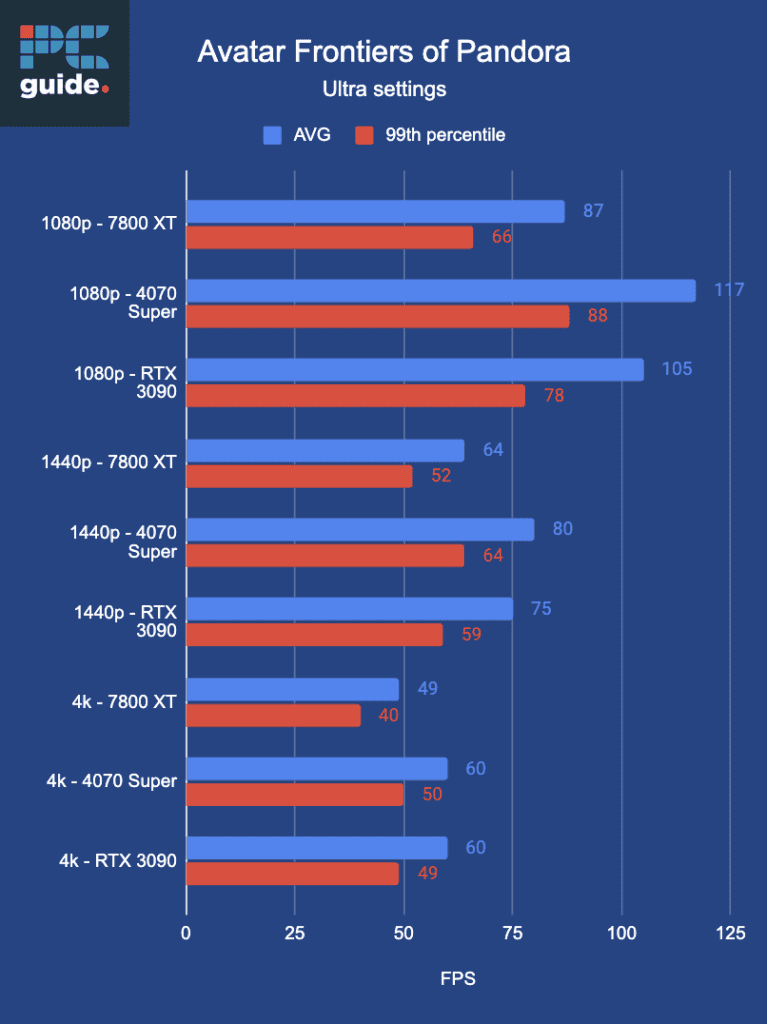
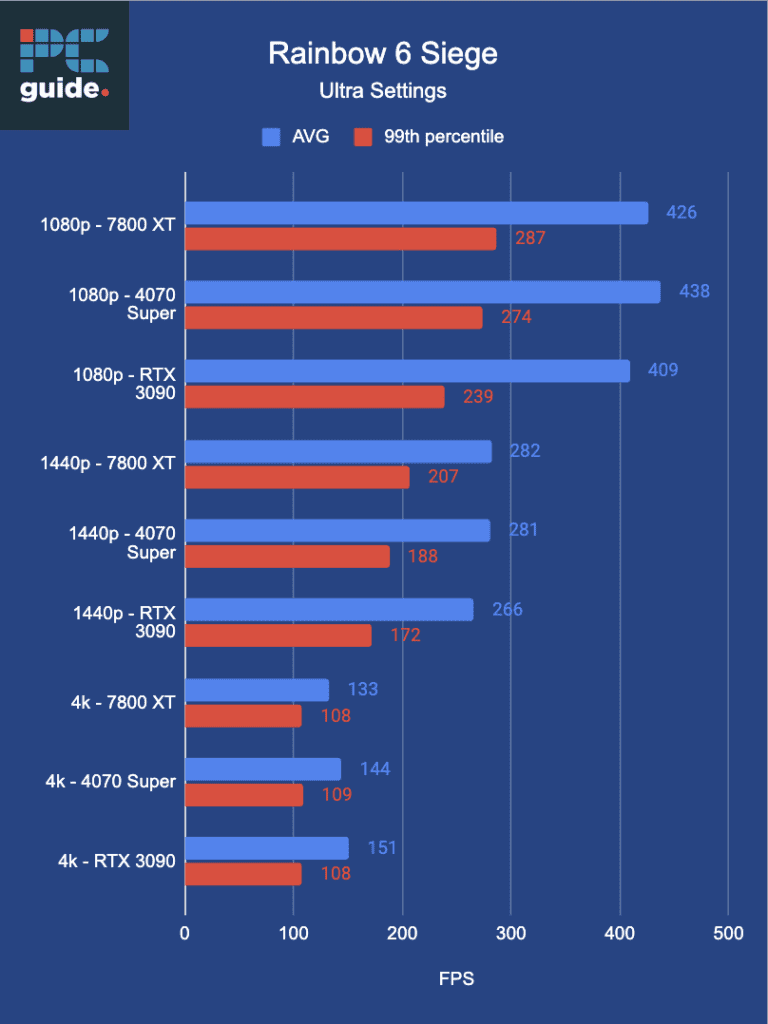
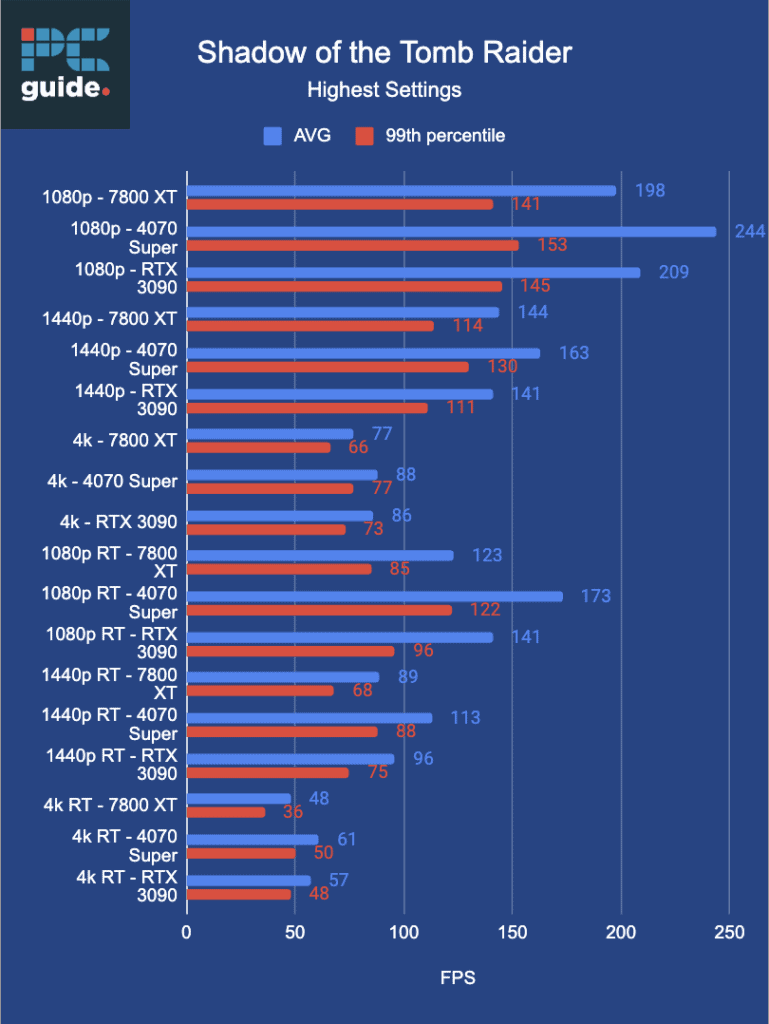
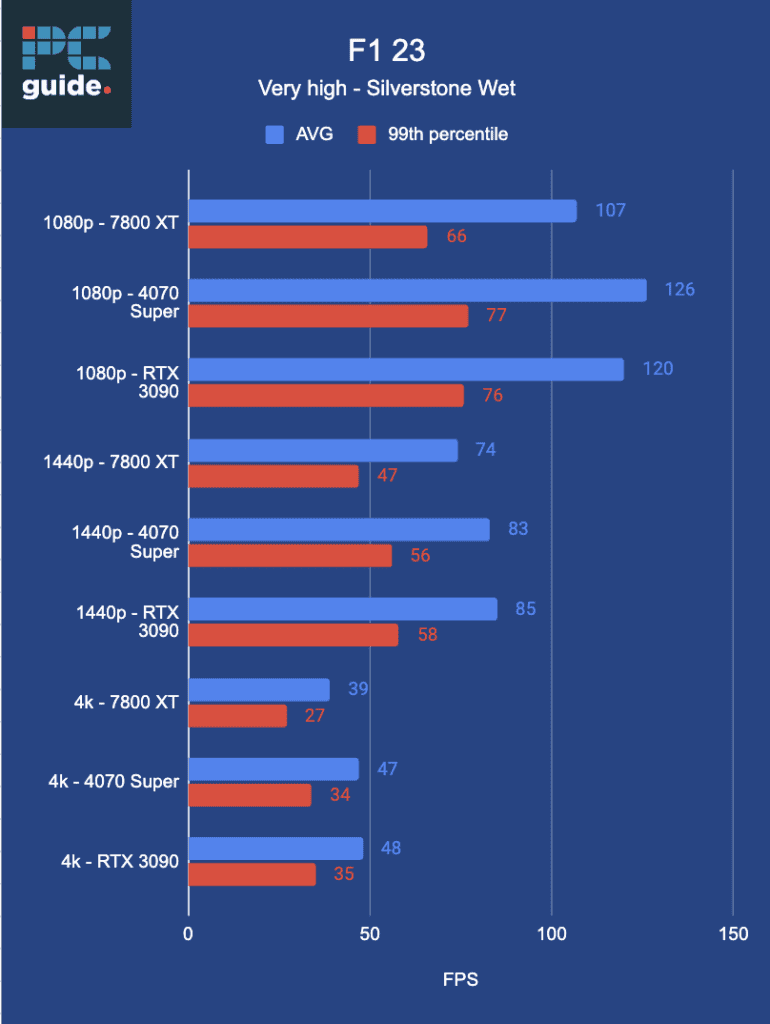
AMD Radeon RX 7800 XT synthetic performance
In terms of synthetic performance, the RX 7800 XT does well in our suite of industry-standard tests such as 3DMark with near neck-and-neck performance against the RTX 4070 Super and older RTX 3090 which is impressive. The lead is broadened out in Blender 4.0 as the Nvidia graphics cards race far ahead in the Monster, Junkshop, and Classroom benchmarks. Simply put, if you’re purely in the market for a productivity-first GPU, the 7800 XT won’t be the one for you.
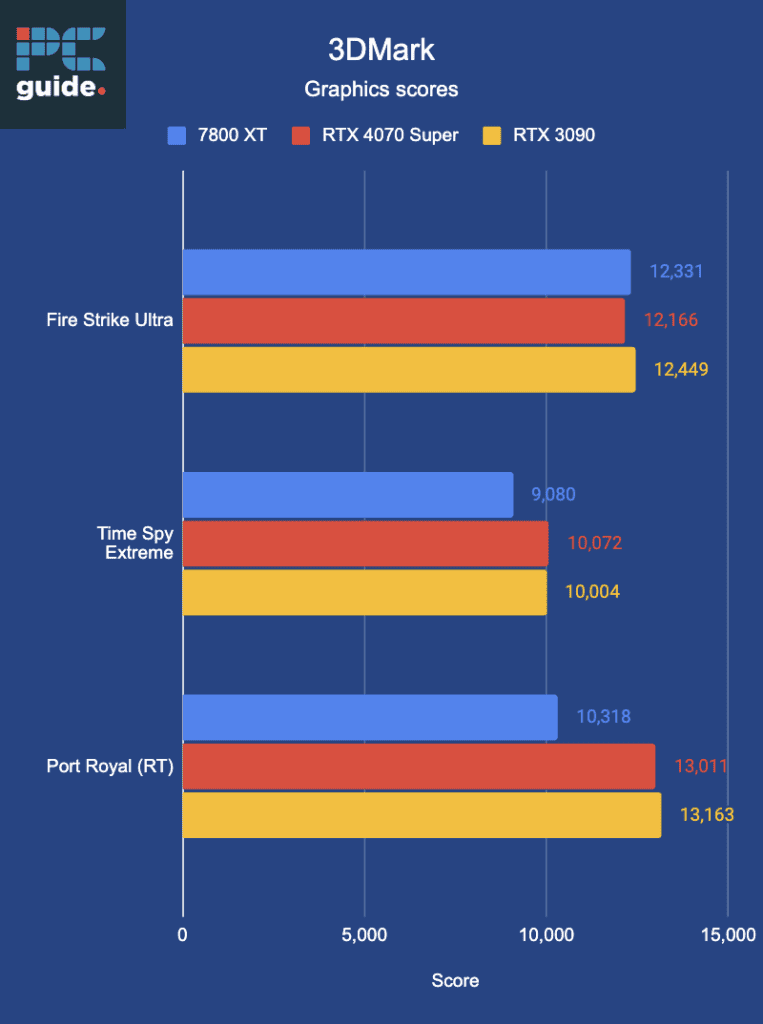
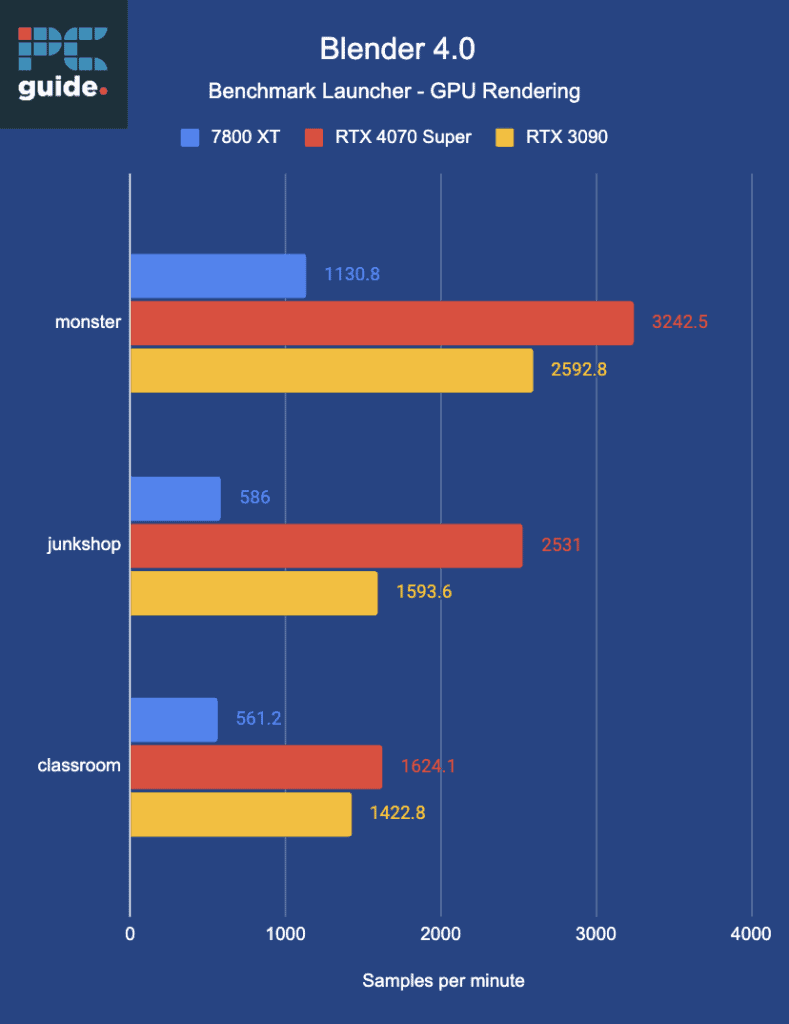
AMD Radeon RX 7800 XT encoding performance
It’s a similar story with the encoding performance through HandBrake’s Tears of Steel 4K benchmark, too. The RX 7800 XT falls short in comparison to its competitors by a considerable margin with about half the scores of its competition. That’s not the case with the HandBrake Tears of Steel demo, however, as the 7800 XT achieved nearly double that of the RTX 4070 Super and RTX 3090. Content creators are going to benefit from fast encoding times whether live streaming or rendering complicated video projects.
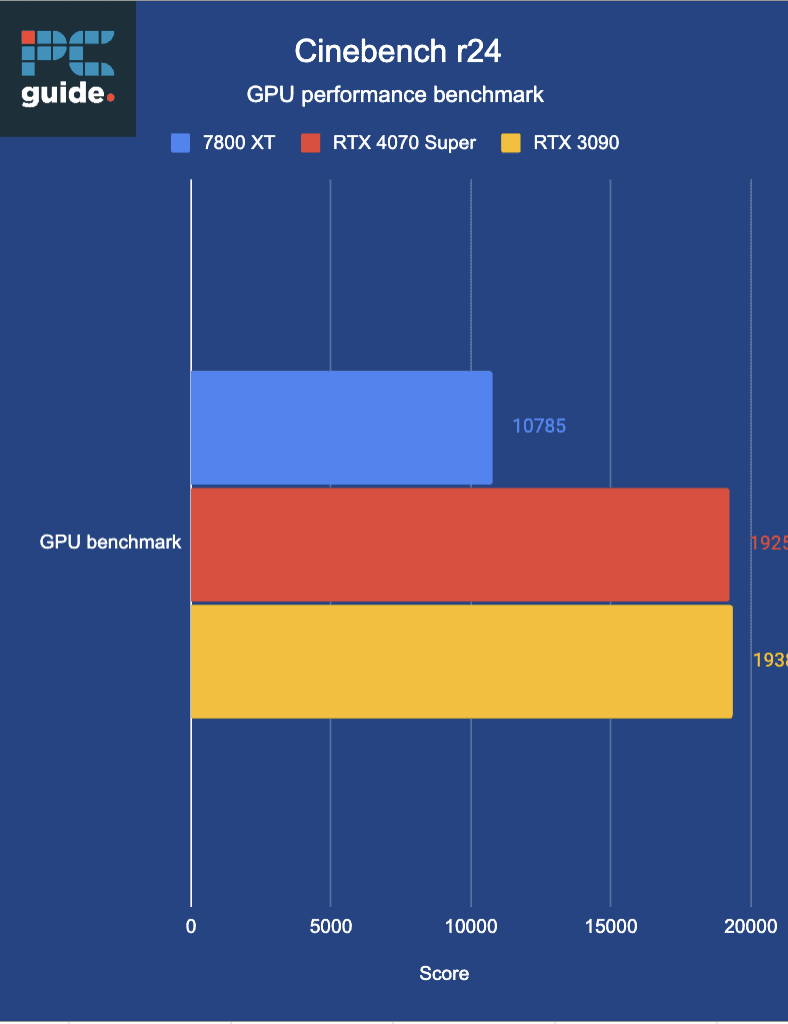
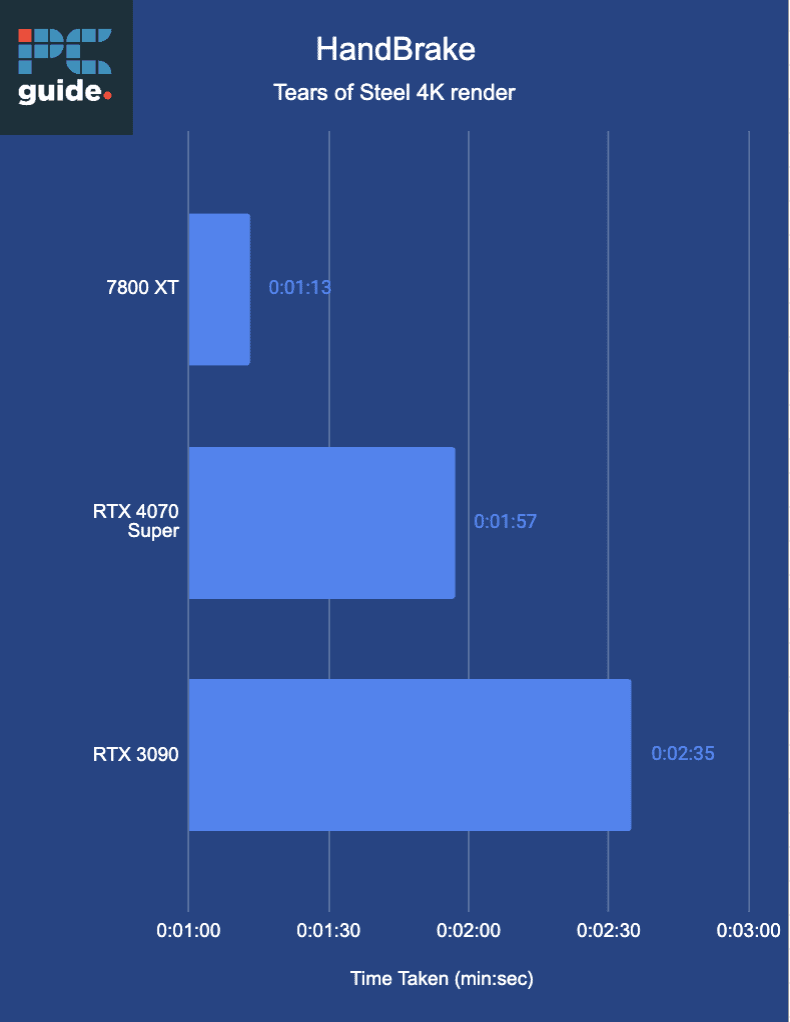
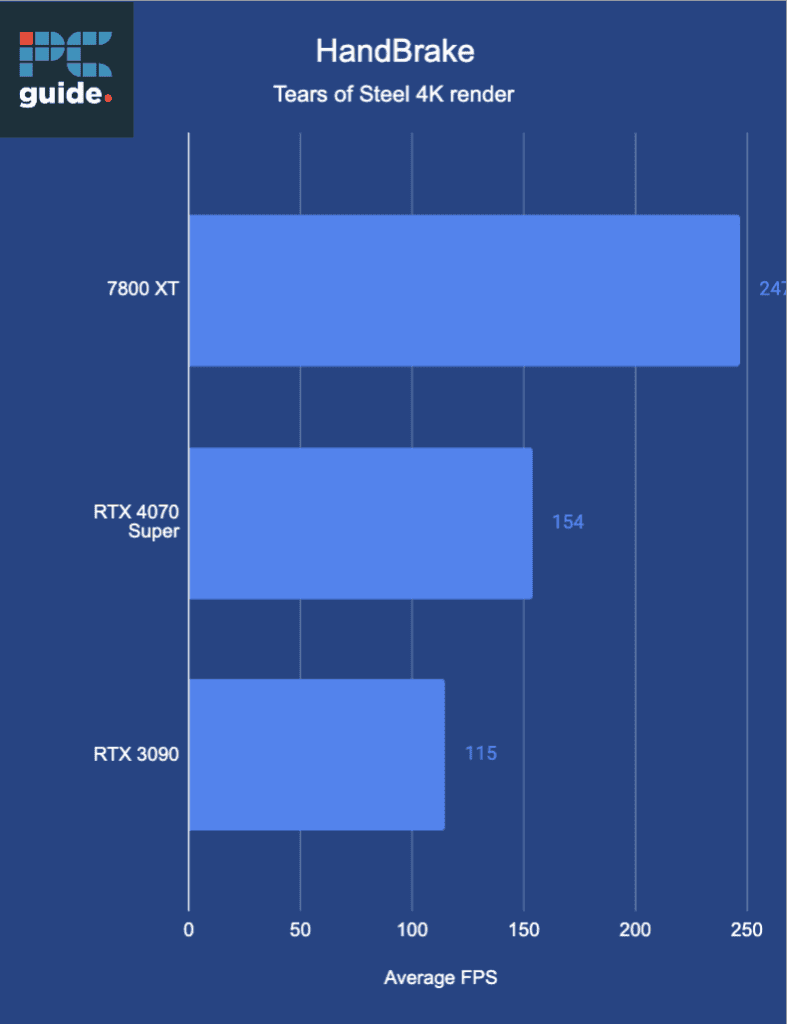
Alternatives to the AMD Radeon RX 7800 XT
If you’re thinking of viable alternatives to the RX 7800 XT then you have the choice of going for the slightly cheaper RX 7700 XT ($449) for 1440p gaming if you’re a little more cash-strapped. Alternatively, from Nvidia, you can opt for the RTX 4070 Super which is available for $100 at $599 and offers a little more performance for the extra money.
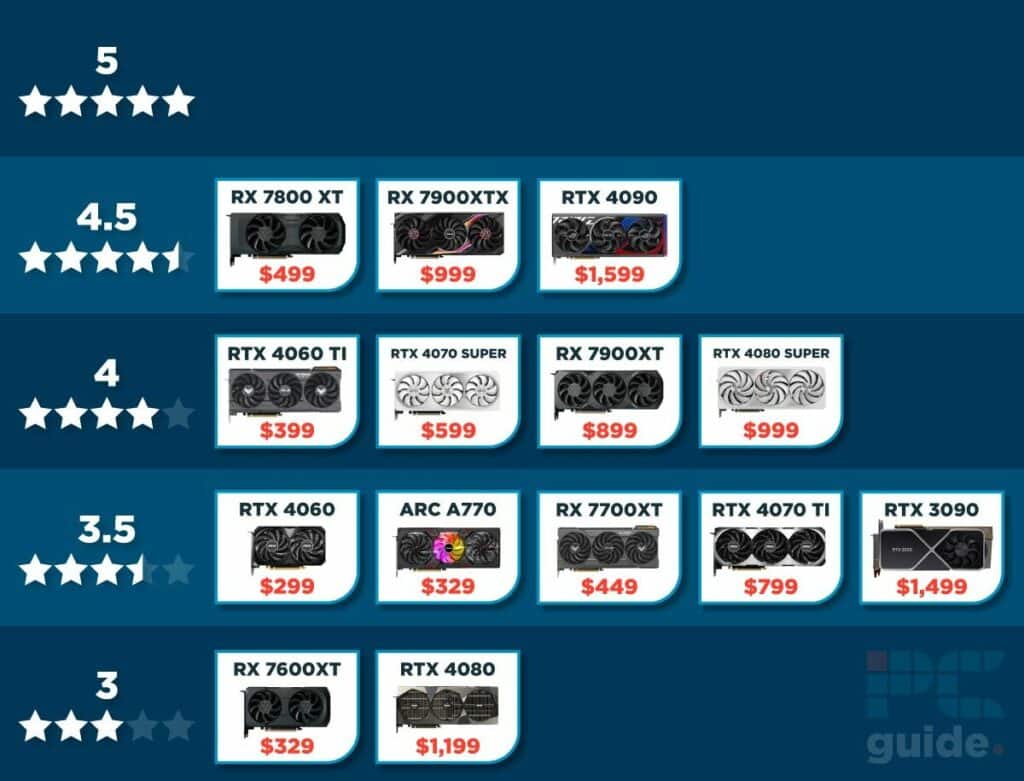
Conclusion
Since its launch, the RX 7800 XT has been an incredibly aggressively priced and powerful video card with strong ray tracing prowess compared to the previous generation RX 6800 XT. It goes to show the advancements made by RDNA 3 architecture for higher FPS on your PC. What’s more, considering it’s priced similarly to the RTX 4060 Ti, you can expect superior value and performance here which is not to be understated, even if DLSS 3 does lead ahead of FSR and Fluid Motion Frames right now.
- You want to game in 1440p
- You want amazing value for money
- A large amount of VRAM is a must
- You want to game primarily in 4K
- You want a GPU for productivity tasks
-
AMD Radeon RX 7800 XT
- GPU: Navi 32
- Stream Processors: 3,840
- VRAM: 16 GDDR6
- Memory bus width: 256-bit
- Bandwidth: 624.1 GB/sec
- Base clock speed: 1,295 MHz

Is the AMD Radeon RX 7800 XT worth it?
The RX 7800 XT leads in terms of 1440p gaming for its price point with 60fps or above natively. For the best performance, you’re going to want to rely on AMD’s Fluid Motion Frames (frame generation) and FSR (AI upscaling). Considering the sub-$500 price point, this mid-range GPU excels.

